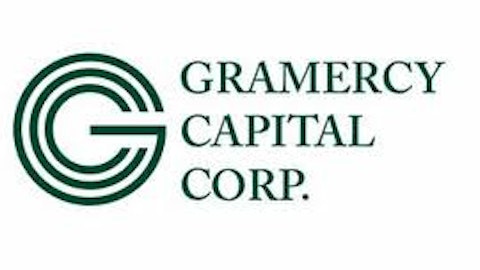
U.S. Bancorp (NYSE:USB) operates its business through several segments: wholesale banking, consumer banking, wealth management & securities services, payment services, and treasury and corporate support. The company has recovered from the financial crisis faster than some of its rivals, and the Fed has approved two dividend increases, up to the 2.3% (78 cents per share) yield that it currently pays. They also approved the bank’s share repurchase program, which authorizes the purchase of up to 50 million common shares.
U.S. Bancorp (NYSE:USB) has done a very good job of growing its operations, and in fact has grown its total (interest and other) income every single year, including during the crisis. Can Citigroup Inc. (NYSE:C) or Bank of America Corp (NYSE:BAC) say the same?

The company intends to continue its winning strategy and use its financial strength to grow its market share. U.S. Bancorp (NYSE:USB) strives to provide the best possible customer service, and to manage costs as efficiently as possible, two areas where they have succeeded admirably in the past.
Back to the discussion of Citigroup and Bank of America, I had previously mentioned that U.S. Bancorp (NYSE:USB) increased its total income every year. Compare the chart above with the income instability of the other two shown in the chart below.

This alone speaks volumes to the viability of USB as a long-term investment. While it doesn’t have quite as many assets as Bank of America or Citigroup, it more than makes up for it with a history of growth and responsible banking practices, something that much of the banking industry seems to just be learning.
U.S. Bancorp (NYSE:USB) trades at a valuation of 12.1 times 2012’s earnings of $2.84 per share, which are expected to rise to $3.07, $3.29, and $3.57 over the next three years. This is an average forward growth rate of right around 8%, which certainly justifies the valuation. An interesting note earnings-wise is that although earnings were down for a few years, USB never had even one quarter in which it posted negative earnings, even in 2008 or 2009. Citigroup had 8 losing quarters, with losses totaling $91.00 per share! (Citigroup’s share price is only around $47)
Citigroup, by contrast, trades at 18.7 times TTM earnings. Although analysts call for earnings to rise nicely by 12% annually, I would need to see some pattern of stability in terms of income and share price before paying that kind of a premium.
Bank of America trades at 14.2 times forward earnings (I use forward in this case because they had an awful 2012 and their earnings were just 25 cents per share). They are expected to build these up to $1.50 per share by 2015, however I’m hesitant to pull the trigger on this one until the foreclosure mess is a thing of the past and the company shows they can actually meet some of the earnings expectations ahead of them.
Not only is U.S. Bancorp (NYSE:USB) more cheaply valued that the other two banking giants discussed here, it is a better dividend payer with a much better track record of growth, income, and responsible practices. Sure, they had some bad loans on their books over the past few years (who didn’t?), but the number and credit quality of their bad loans pale in comparison to that of some of their rivals. USB simply seems like a long-term investor’s dream, while the other two still look very speculative at this point.
The article A Responsible Bank for the Long Term originally appeared on Fool.com and is written by Matthew Frankel.
Copyright © 1995 – 2013 The Motley Fool, LLC. All rights reserved. The Motley Fool has a disclosure policy.



